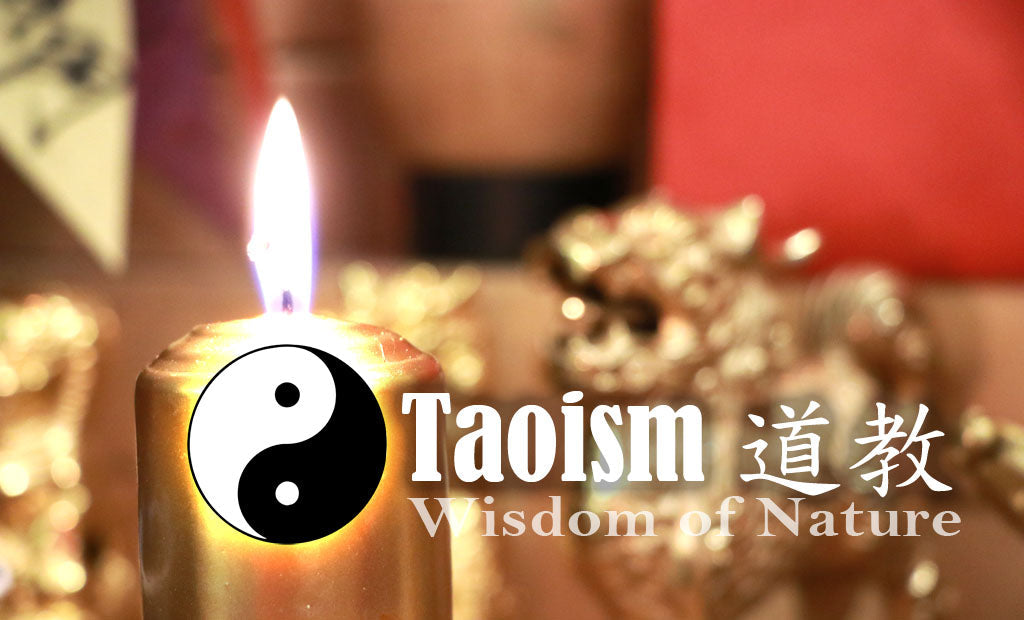
When giving feedback to your teacher, it is a common thing that people will say, “I liked this XYZ very much,” it just feels like a “positive” thing, right? The fact is, no, it is not. In your teacher or master’s eyes, should you not have liked everything he teaches? That’s what it should be natural, so why are you saying you liked this very much if you are supposed to like everything? Do you have something you don’t like?
As a good disciple, you are supposed to like everything, just like your master has liked everything he has learned from his upper. A bad disciple will do what we call “selective” learning, which means they will only learn what they want to learn, and I can tell you these disciples are very much a waste of time for the master and themselves. It is also disheartening for the master to witness because it’s like a child who says they only like this side of their parent and not every side of them. Try saying this to your wife or husband, “I liked the side when you do XYZ, but not every side of you,” and see how they feel. True love means you should like every side of the other side, and even though they might not be the same as you, it is for you to accept and blend with them. Just like you might not like some habits your wife has, but if you do love her, you should also learn to love that side of her because no one is perfect and no one is “identical” to you. Humans only like things that are “alike with themselves,” which is why you will never like a person fully because they are not always “the same or similar” to you.
So, how can you show gratitude to your master and his teachings if you have to “avoid” using the “I liked this XYZ teaching” phrase?
With the wisdom of Saam Law Tao, there goes the basic structure using the trinity principle of creation – Sky, Ground, and Human.
Break down the feedback into three phases and learn to give light, add energy and blossom into effect.
Say what stands out the most to you, like it is glowing, then add more to elaborate on that point, and because of this point, what have you learned or what has this led you to want to learn more about?
Remember that your master likes to see you learn, and his role is to teach. When you give feedback, your goal is to motivate him to teach you more because that tells him you liked his teachings. Just like if the grandma cooked some good food for you, instead of telling her you liked this and liked that, you ask for more, and the more you want, the more your grandma smiles because it shows her you loved it a lot. This is the true way of showing appreciation which a baby or child will know how to do, and adults suck at doing because we are taught to act and fake our expressions. Especially the so call manners, you have to say you like it, or it was good even if it is not. When the chef or waiter comes over and asks you how your dinner was, it is just “improper” to say it is bad; you are expected to say, “It’s good.”
I am happy when I see disciples asking me for MORE and MORE teachings on the subject because it shows they desire to learn and love my teachings. Truth is told by action and not words. At the same time, I see through some disciple’s fake coating, and they would say, “I liked this teaching” to me up front, but I feel and see no desire for more; it’s like they have put the conversation to a dead end and a full stop. This kind of “dead air” is felt right away, and I knew that “like” they said, I was not honest and truthful. Why would you stop here and not want more if you liked it? Common excuses would be, “I am still thinking, and my brain is getting fried,” like they are overloaded with information. However, I knew that was fake because if a kid enjoyed some good food, they would ask for more, even if they were stuffed. They WANT more, doesn’t mean they can digest it all.
Adults need to relearn their life lessons and learn how to give truthful and honest feedback that benefits the relationship. This goes the same with marriage, family, friends and not just Taoism learning. If you are a faker, you will have a fake relationship with your other half and your family. Imagine everyone in the family is a plastic face; everyone is like a politician speaking on TV, hiding their feelings; what a disaster.
The Famous “F7” Teachings
We have a way to give feedback in our lineage called an F7. F for feelings and 7 is because of phase seven. Its structure is simple, “F7, content, 101.” However, the “content” is often the hardest part for most people because they would be stuck at saying, “I liked this XYZ from the teachings…” and it seems like people have a hard time trying to “find things to say” and end up just stuffing up a “summary of the lesson.” The worse case was how people used F7 to rephrase the whole lesson in a shorter form; it is not what an F7 is for!
The goal of an F7 is to give feedback to the master, show your feelings and appreciation, and, most importantly, motivate your master to teach you more. Compare this to a kid doing an F7 to their grandma who just made them some delicious snacks. The F7 would be for the kid to show their hype and happiness to the grandma so that the grandma would be happy and motivated to cook more delicious snacks for him again shortly. Imagine the kids said this “F7, grandma cooked chicken wings in sweet soy sauce today, it was delicious, and the wings are very filling. 101.” Are you logging a data entry into a notebook like a robot? Or maybe this would be better? “F7, the wings today are so juicy, and I love the sauce so much I wished I had a bowl of rice to enjoy the sauce more! 101.” If you are the grandma, you would know that this kid loves the sauce, and next time, you would want to cook something similar and get him hooked. It’s very happy to see a good F7 with feelings in the message and not just a cold, robotic, and lifeless “log entry.”
The main point does your F7 achieved the goal or not. –to make your master happy and motivate him to teach again. Put yourself into the master’s position and read your F7 aloud; if it doesn’t have that power, then craft it nicely, just like how your master has spent the effort to craft his teachings for you. This is a basic form of respect. The master has spent time crafting and creating the learner's content, so why should the learner be expected to give short and lame feedback with minimal effort?
The format of an F7 is unimportant because sometimes people do F7s without using this format, and it can still be very effective. For example, I have taught a disciple by making videos to teach her martial art training. After a while, I learned that she was doing it daily and enjoying that as part of her lifestyle. Then, she started asking questions that dug into the details and requesting a side view for details on how many turns here and how high to punch here etc. I started to feel how much she has dug into the teachings because if you are not serious, you won’t notice all the details, and there would be no desire for details and a deeper understanding of the parts. When I saw all those questions and requests, I was immediately hyped and motivated to make more videos for her and help her polish her skills furthermore. It felt genuine, unlike those who showed me a robotic “F7,” which only was done to fulfil and not really to express their heart. Like I always said, they were doing it because they were “told” to do so, not that they wanted to do the F7, which turns me away. To the master, it’s like, “if you don’t want to learn, why do I have to keep teaching? No one is forcing you to learn.”
The Black Energy that Matters
The term we use for the desire to learn and know more is Xuan Gong 玄功 (Yuen Gung), which is the power and energy of black. It’s black because it relates to phase two in the nine stars theory. Taoists must cultivate their Xuan Gong to build the desire for more teachings and to know more about the Tao. If the Xuan Gong is weak, the gods will do the same to them because they are like a reflection of themselves. Imagine the gods have no desire to want anything from you; then it’s like the gods don’t even like you or want you around. What does that sound like?
The opposite energy, “1-white,” gives birth to more black (Xuan Gong). If you lack this black energy, you need more white, which is the energy of phase one. White energy gives you the vision and lets you see the path ahead. For Taoists, I strongly suggest you read more content in the lineage, dig into the scripture books with translations and start to lick every page of them. Once you start doing that, you should have many questions. Don’t hesitate; ask them immediately, and you will see many teachings coming your way.
Back then, when I was a disciple of my masters in martial art, I used to be very “gluey” to the masters. I can ask them questions in a coffee shop for two hours nonstop and always have things I want to know more about. When I ran out of questions, I would watch how they do their kung fu, and new questions would come up immediately. Looking for questions to ask is a kind of cultivation, too. The more you do it, the more potential you will have for learning something new.
I once recorded my master doing a form, and since then, I have watched and rewatched the video millions of times to get every frame of the video licked to a sparkling clean stage. I kept looking for details, digging into the juice, the little things hidden from outsiders, and trying to improve my skills based on his. The more I am similar to him, the better I will be. That’s how a disciple should be in the heart, trying to be as similar to your master as possible. A good master would love questions any day; only the bad ones will kick you away and ban you from asking more questions. I learned very fast back then because of my mindset, which I find almost close to non-exist for people these days. I am always confused when I look at some disciples; why did they spend all that money to ordain but waste their time and not even try to learn proactively once they got into the learning stage? Do they have too much money to waste? Or do they have no desire to learn? Learning and getting more teachings from your master is free of charge; all you need is the right mindset, respect, and giving feedback.
Regardless if you are a disciple here or elsewhere, you can apply the wisdom taught in this article to enhance your relationship with any human being immediately. Learn to give feedback and show your heart positively and truthfully; it is way better than being the “modern” type that only lives by using fake expressions and hollow words like “oh, it’s good.”
Get ordained and become a Taoist today, and learn more about improving your life with this wisdom!


